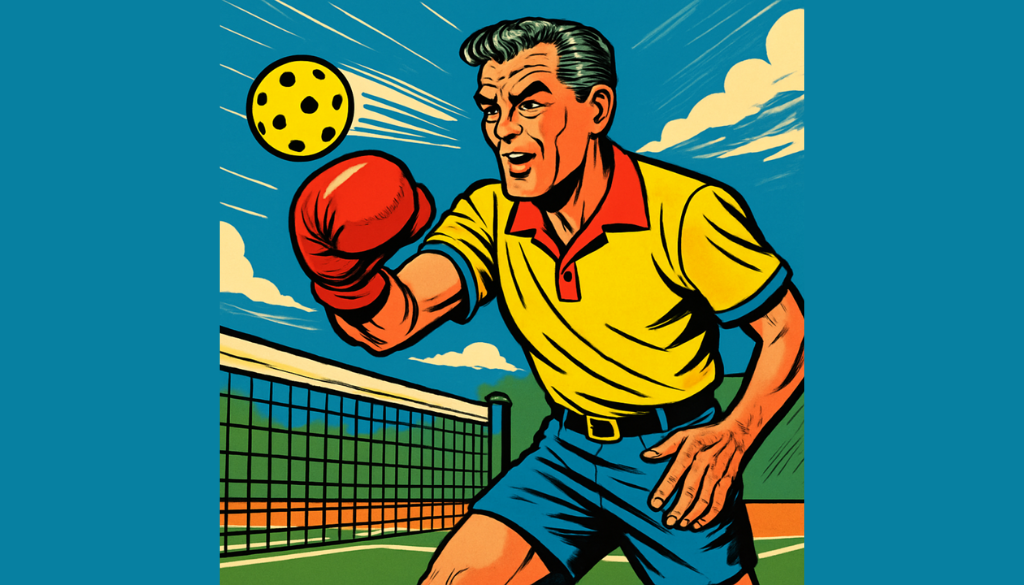In what may become one of the most high-profile legal showdowns in pickleball history, paddle manufacturer Joola and USA Pickleball—the self-proclaimed governing body of the sport—are locked in a contract dispute involving 150,000 paddles, $70 million in inventory, and a whole lot of finger-pointing.
At the heart of the case is a breakdown in the equipment approval process, which has left one of the most recognized names in paddle manufacturing with a warehouse full of unsellable gear. The implications could ripple far beyond the courtroom—raising questions about oversight, brand trust, and who really holds the power in pickleball’s booming marketplace.
The Backstory
Joola, a major paddle brand, filed suit against USA Pickleball last year after the organization abruptly revoked its prior approval of a new paddle design. According to Joola, they had already manufactured and begun marketing the paddle based on what they believed was a valid September 2023 certification. After producing 150,000 paddles, the rug was pulled out—leaving $70 million worth of inventory in limbo.
USA Pickleball countersued, accusing Joola of using the “USAP Approved” logo without proper authorization, claiming the wrong paddle had been submitted for re-testing. They argue it was Joola’s own error—sending in a version with an impermissible foam variance—that led to the paddle’s decertification.
A Logo, a Lawsuit, and Legal Loopholes
This week, Joola struck back again. In a June 2025 court filing, the paddle maker asked the Maryland federal court to dismiss USA Pickleball’s fraud and false endorsement counterclaims, calling them legally flimsy and financially empty.
Joola’s argument is blunt: USA Pickleball doesn’t make money from its “USAP Approved” logo, so it can’t claim financial damages if the logo was misused. Moreover, Joola claims that no paddles with non-compliant foam were ever sold. The paddles in question were allegedly functionally identical to the ones previously approved, and any variance was discovered and reported by Joola themselves.
In legal terms, Joola is accusing USA Pickleball of grasping at straws—trying to shift the focus away from its own “misdeeds” by filing counterclaims that have no financial or factual backbone.
The Bigger Picture
For recreational players, this battle may seem far removed from daily doubles at the local park. But it highlights deeper issues that could affect every player, vendor, and club:
- Transparency in Equipment Approval: If one of the largest paddle brands can stumble—or be sabotaged—by a lack of clarity in the approval process, what does that mean for smaller manufacturers trying to enter the market?
- Trust in Labels: The “USAP Approved” logo is supposed to signal reliability. But if the logo can be revoked after the fact, or misapplied due to inconsistent communication, its value to players becomes questionable.
- Centralized Control: USA Pickleball has positioned itself as the gatekeeper for what equipment is acceptable. This lawsuit is a reminder that when one organization holds that much power, mistakes or conflicts can have massive consequences—not just for manufacturers, but for players and retailers as well.
What Comes Next?
The case—Sport Squad Inc. v. USA Pickleball Association—is currently pending in the U.S. District Court for the District of Maryland. Joola is represented by Shulman Rogers PA, and USA Pickleball is represented by Bryan Cave Leighton Paisner LLP.
As the legal drama unfolds, both sides appear entrenched. USA Pickleball maintains that Joola’s missteps are to blame, while Joola insists the governing body acted without justification and upended the market.
No matter who ultimately prevails in court, this dispute serves as a wake-up call to the growing pickleball industry: as the sport gets more serious, so do the stakes.
For the average player, it might be tempting to tune out legal scuffles between manufacturers and certifiers—but decisions made in courtrooms like this one could shape the future of the gear you use and the companies you trust.
So the next time you pick up a paddle, you might ask yourself: who really decides if it’s game-ready?





